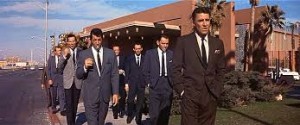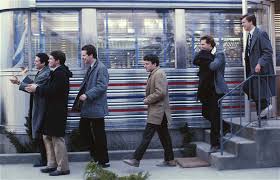My old hometown of Binghamton, New York, and its surrounding area took a pretty good one-two punch the last couple of weeks, further devastating that already quite devastated area known to many as “upstate.”
The best part? One of them was pretty self-inflicted.
I think the only two things that could have saved the Binghamton area in decades to come would have been 1.) casino gambling; and 2.) the exploration and development of energy from natural gas. Both of those fell apart earlier this month.
Not living in Binghamton anymore, not paying as much attention as I used to, and not caring nearly as much as I used to, I am unfamiliar with every detail of the twin sagas. And other than a few people at the top, I’m sure this is the case for everyone else as well. Nobody ever really knows the whole story. But the bottom line here seems to be: neither one of those projects is going to happen, whether sabotaged from within or without.
Casino gambling in the Southern Tier was hardly an issue when I left the area at the end of 2011. It surprised me to read some time later that someone with a brain started lobbying New York State to allow such a thing. The fact that one must lobby the government for “permission” to operate such a business is a story for another time, but it seemed at least the wheels were in motion to obtain such permission here. So the–wait for it–Gaming Facility Location Board of New York State was tasked, apparently, with selecting a venue worthy of such consideration. (If this sounds to you like something from Soviet Russia or The Hunger Games you have made an apt analogy.)
And District 12 didn’t get picked.
Whoops.
Not even the “clout” of State Sen. Tom Libous could wrangle that casino board to permit Binghamton such an honor. Libous says he will continue to lobby the governor. Right. (Insert joke here about doing so from prison.)
Much handwringing can be made over losing such a sweepstakes, but there is little excuse for things one brings upon himself. Case in point, I have never seen someone, or some group of people, so upset by something that might actually benefit the group as residents of the Southern Tier and their zealous fight against natural gas development. (Or as you know it, fracking.)
I’ve never seen a poll detailing the percentages of Southern Tier residents for and against “fracking” or any of its more pleasant-sounding names. My guess would be a majority would favor it or at least be apathetic. But a certain segment (led in part by Binghamton’s previous mayor and its previous member of Congress) was able to take hold of the issue and keep it at bay for years. And with the state’s recent moratorium placed on hydraulic fracturing (as it is actually called), it seems as though they’ve won. Bottle it up with a few more years of “studies” and boards and committees and “analyses” and it’ll disappear forever. Meanwhile, the state of North Dakota holds its 2% unemployment rate and staggering economic growth. You’re welcome, North Dakota. You’re welcome.
They could have at least sent a Christmas card.


